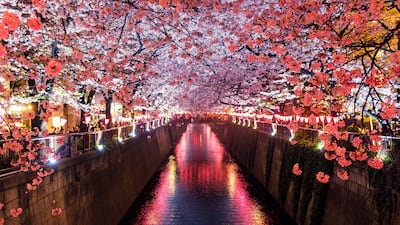After more than 30 months of pandemic isolation, Japan has finally opened to tourists again.
From Tuesday, visa-free travel is once again an option for travellers from 68 countries, with no quarantine or isolation needed on arrival.
The move marks the end of some of the world’s toughest Covid-19 restrictions and authorities are hoping it will boost the Japanese yen’s slide to a 24-year-low.
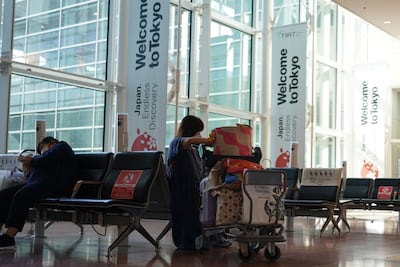
Tourists visiting the land of the rising sun need to be vaccinated or have a Covid-19 negative test certificate, but authorities no longer require visitors to be part of an organised tour group and have lifted a cap on passenger numbers.
More details on everything you need to know about travelling to Japan are here.
Just over half a million people have travelled to Japan so far this year, compared with a record 31.8m in 2019. Those in the industry are hoping for a tourism boom now that restrictions have eased, but obstacles linger.
Japan's flight shortage and high airfares
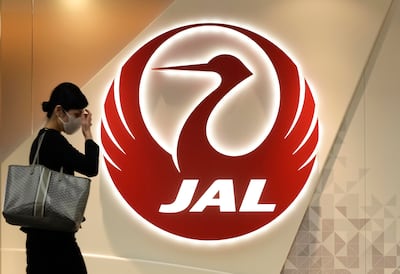
Many airlines have resumed international flights to Japan and some are increasing their networks, but many of these changes will not be implemented immediately. With rising demand and a shortage of seats, airfares to Japan look set to remain high for the time being.
Tokyo's All Nippon Airways has added flights to its international schedule and is operating at 37 per cent of its pre-pandemic flight numbers this month. While this is expected to increase in the coming months, it's predicted to settle at only 40 per cent of pre-pandemic numbers by the end of the year.
From the UK, British Airways will resume direct flights from London to Haneda from mid-November, but has yet to announce plans to restart direct flights to Osaka.
Emirates operates to Tokyo and Osaka from Dubai and is currently operating only one flight per week to both destinations. The airline will upgrade capacity on its Narita-Dubai route by deploying its A380 superjumbo from November 15, but has no plans to add additional flights until March next year.
Travellers are also having to contend with longer flight times on some routes, with airlines having to reroute planes to avoid Russian airspace because of the country’s ongoing war on Ukraine. Finnair is one airline that’s been majorly affected by this, with flights from Helsinki to Tokyo now taking up to three hours longer.
Conversely, with the yen having hit a quarter-century low against the US dollar, flight prices might look heftier but costs on the ground are currently more attractive.
A hospitality staff shortage
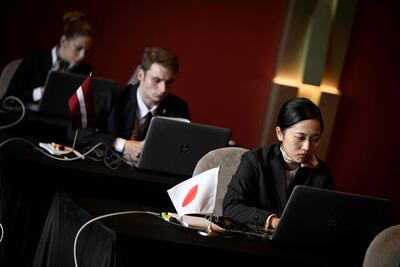
While bookings are thriving, some hotels in Japan are struggling to find staff after many people in the tourism industry took up new positions during the pandemic.
In August, more than 72 per cent of hotels across Japan said they were short-staffed, according to market research firm Teikoku Databank.
Akihisa Inaba, general manager at the hot-spring resort Yokikan in Shizuoka, central Japan, told Reuters that short-staffing during the summer meant workers had to forego time off.
“Naturally, the labour shortage will become more pronounced when inbound travel returns,” said Inaba. “So, I'm not so sure we can be overjoyed.”
Japan Airlines said it has seen inbound bookings triple since the country announced its reopening last month. However, the airline also reported that it does not expect international travel demand to fully recover until 2025.
Face masks are here to stay
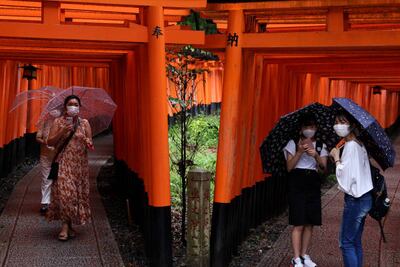
Japan still strongly encourages people to wear masks indoors and refrain from loud talking.
Wearing masks has long been a cultural norm in Japan, even before the pandemic, and travellers should expect that most people will be expected to wear a mask indoors or on public transport, even if it's not a legal requirement.
Travellers visiting Japan also need to be prepared to follow any emergency isolation rules introduced if an infection outbreak happens, which includes mandatory mask-wearing.
On October 7, authorities changed regulations to allow hotels to refuse entry to any guests who do not obey infection controls during an outbreak.
“From the start of the pandemic until now, we've had just a few foreign guests,” said Tokyo innkeeper Arata Sawa.
“Pretty much all of them wore masks, but I'm really not sure whether the people who visit from here on will do the same. My plan is to kindly ask them to wear a mask while inside the building,” he said.
With additional reporting by Reuters






















